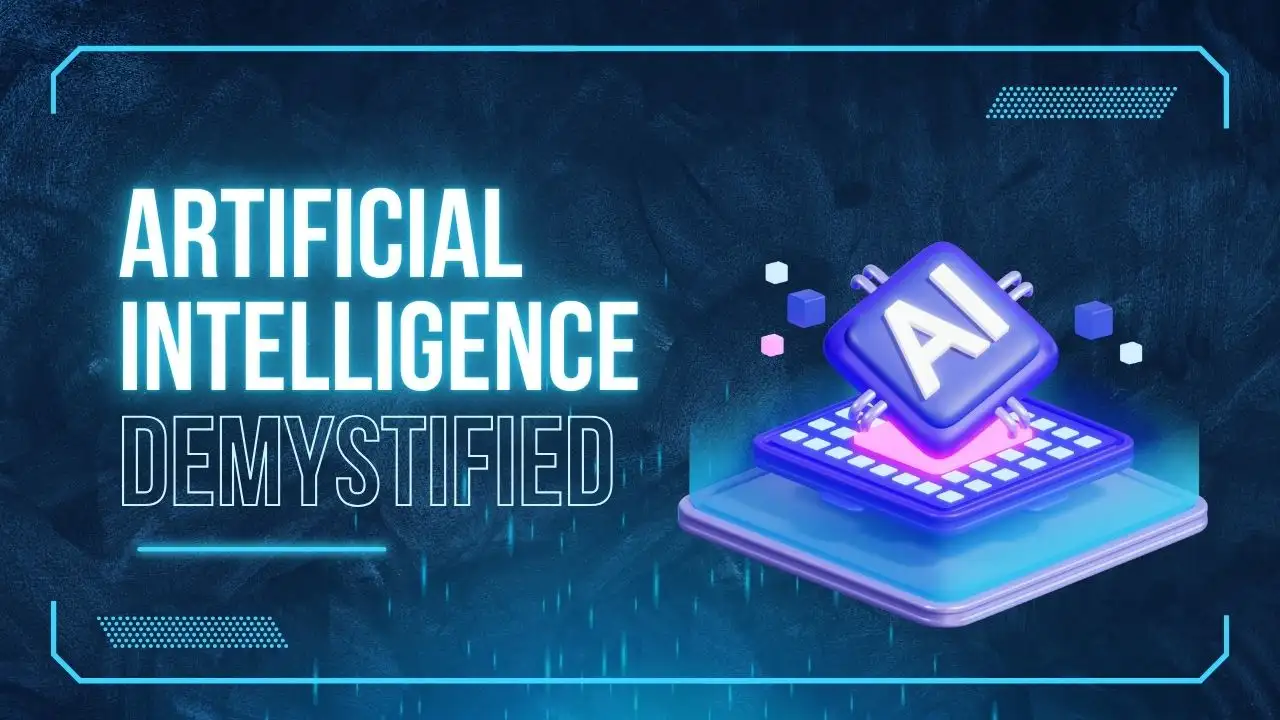You know that feeling when you ask Siri to play your favorite song, and she nails it every time? Or when Netflix seems to know exactly what show you’re in the mood for? That’s a little glimpse into the world of Artificial Intelligence, or AI. But what exactly is AI?
In the simplest terms, AI is like giving machines a bit of human smarts. It’s all about creating systems that can think, learn, and make decisions, almost like we do. From recognizing faces in photos to driving cars, AI is quietly weaving its way into the fabric of our daily lives. It’s fascinating, it’s evolving, and it’s making our gadgets more helpful than ever before.
Introduction to Artificial Intelligence
What is Artificial Intelligence?
Artificial Intelligence, or AI, refers to the simulation of human intelligence in machines that are programmed to think and learn like humans. These systems can perform tasks that typically require human intelligence, such as visual perception, speech recognition, decision-making, and language translation.
Brief History of AI
AI has its roots in ancient mythology and stories of artificial beings endowed with intelligence. However, the formal field of AI research began in the mid-20th century. In 1956, the term “Artificial Intelligence” was coined at the Dartmouth Conference, marking the birth of AI as an academic discipline. Since then, AI has gone through various phases of optimism and setbacks, known as “AI winters,” but has seen significant advancements in recent years.
Types of Artificial Intelligence
Narrow AI
Narrow AI, also known as Weak AI, is designed to perform a narrow task, such as facial recognition or internet searches. These systems are highly specialized and cannot perform tasks outside their specific domain.
General AI
General AI, or Strong AI, refers to a type of AI that possesses the ability to understand, learn, and apply knowledge across a wide range of tasks at a human level. It remains a theoretical concept, as no AI system has yet achieved this level of generality.
Superintelligent AI
Superintelligent AI is a level of intelligence that surpasses human intelligence in all aspects, including creativity, problem-solving, and social intelligence. It is a hypothetical future AI that raises significant ethical and existential questions.
How AI Works
Machine Learning
Machine Learning (ML) is a subset of AI that involves training algorithms to learn from and make predictions or decisions based on data. ML models improve over time as they are exposed to more data.
Deep Learning
Deep Learning is a subfield of ML that uses neural networks with many layers (hence “deep”) to analyze various factors of data. This approach has been particularly successful in areas such as image and speech recognition.
Natural Language Processing
Natural Language Processing (NLP) enables machines to understand and interact with human language. Applications of NLP include language translation services, chatbots, and voice-activated assistants like Siri and Alexa.
Applications of AI
AI in Healthcare
AI is revolutionizing healthcare by enabling faster and more accurate diagnoses, personalized treatment plans, and predictive analytics to foresee health issues before they arise.
AI in Finance
In the financial sector, AI helps with fraud detection, algorithmic trading, personalized banking experiences, and risk management. AI systems analyze large datasets to identify patterns and trends that humans might miss.
AI in Transportation
Self-driving cars are one of the most well-known applications of AI in transportation. AI also optimizes traffic management, improves safety, and enhances the efficiency of logistics and supply chain management.
AI in Entertainment
AI enhances the entertainment industry through personalized recommendations on platforms like Netflix and Spotify, as well as through the creation of immersive virtual reality experiences.
AI in Education
In education, AI provides personalized learning experiences, automates administrative tasks, and offers intelligent tutoring systems to help students learn more effectively.
Benefits of AI
Increased Efficiency
AI systems can process large amounts of data quickly and accurately, significantly increasing efficiency and productivity in various industries.
Enhanced Decision Making
By analyzing vast datasets, AI provides insights and predictions that help businesses and individuals make better-informed decisions.
Automation of Routine Tasks
AI automates repetitive and mundane tasks, freeing up human workers to focus on more complex and creative activities.
Challenges and Limitations of AI
Ethical Concerns
AI raises several ethical issues, including concerns about bias, privacy, and the potential for misuse in surveillance and weaponry.
Bias in AI Systems
AI systems can inherit biases from the data they are trained on, leading to unfair and discriminatory outcomes in areas such as hiring and law enforcement.
Privacy Issues
The use of AI in data collection and analysis poses significant privacy risks, as personal information can be misused or inadequately protected.
Job Displacement
As AI automates more tasks, there is a growing concern about job displacement and the need for workers to adapt to new roles and industries.
The Future of AI
Emerging Trends
Emerging trends in AI include advancements in natural language processing, the integration of AI with the Internet of Things (IoT), and the development of more ethical and transparent AI systems.
AI and Human Collaboration
The future of AI will likely involve closer collaboration between humans and AI systems, with AI augmenting human capabilities and helping solve complex problems.
Potential Risks and Precautions
While AI holds great promise, it also poses risks such as the potential for misuse and unintended consequences. It is essential to establish ethical guidelines and regulations to ensure the safe and beneficial development of AI.
Conclusion
AI is transforming the world in profound ways, offering incredible benefits while also posing significant challenges. As we continue to develop and integrate AI into our lives, it is crucial to consider the ethical implications and work towards creating AI systems that are fair, transparent, and beneficial for all.
FAQ
What is the difference between AI and Machine Learning?
AI is a broad field that encompasses various technologies aimed at creating intelligent systems. Machine Learning is a subset of AI focused on training algorithms to learn from data and make predictions.
How does AI impact everyday life?
AI impacts everyday life through applications like voice-activated assistants, personalized recommendations, smart home devices, and improved healthcare diagnostics.
Can AI be creative?
AI can assist in creative tasks such as generating music, art, and writing. However, it typically works in collaboration with human creativity rather than replacing it.
What are the ethical implications of AI?
The ethical implications of AI include concerns about privacy, bias, job displacement, and the potential for misuse in areas like surveillance and autonomous weapons.



